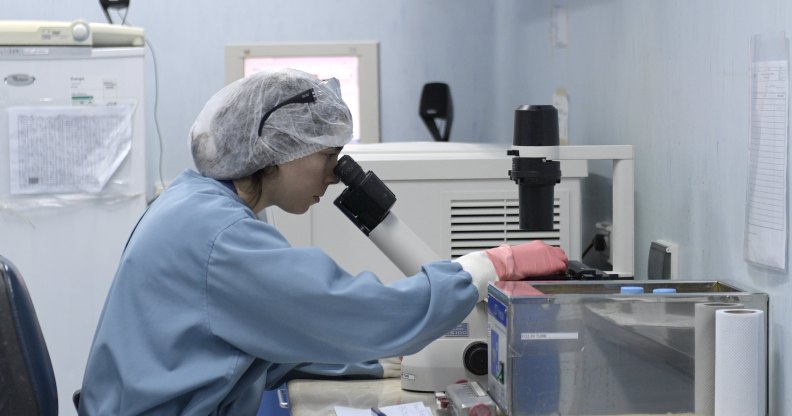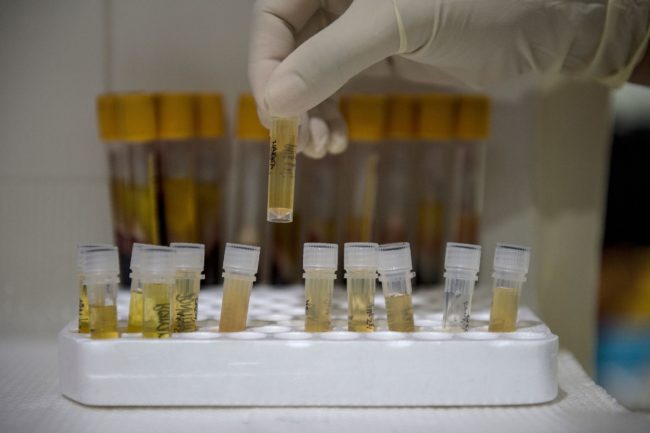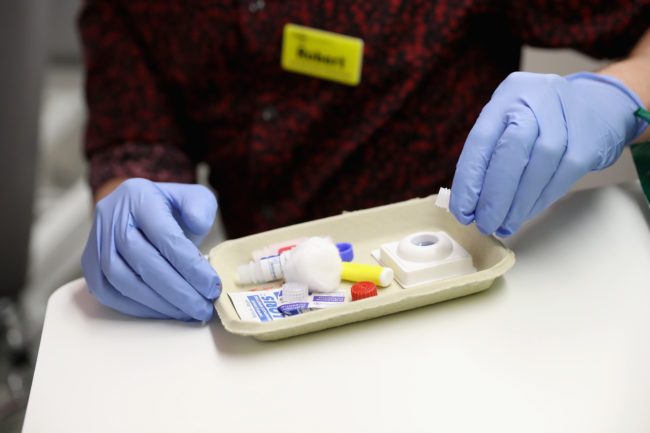HIV cure: British patient becomes second person to beat virus

PhD student works with HIV virus (JUAN MABROMATA/Getty)
A British man cleared of HIV has become the second known person in the world to beat the virus after receiving a bone marrow transplant from a virus-resistant donor.
The patient received bone marrow stems from a donor with a rare genetic mutation three years ago, and 18 months after coming off antiretroviral drugs, tests still show no sign of his previous HIV infection, according to the Guardian.
Dr. Ravindra Gupta, a HIV biologist who co-led the team of doctors who treated the patient, has described him as “functionally cured” and “in remission.”
“Reports such as these may help in the ultimate development of a cure for HIV.”
—Dr Andrew Freedman
He added: “There is no virus there that we can measure. We can’t detect anything.”
However, Gupta was cautious about the results released on Tuesday (March 5) and warned: “It’s too early to say he’s cured.”

HIV testing. (Noel Celis/Getty)
Experts have also warned that the treatment carried out is not practical or healthy for people living with HIV, reports the BBC, but could ultimately help to find a cure.
The patient from London has not been named, and was first diagnosed with HIV in 2003, as well as advanced Hodgkin’s lymphoma in 2012.
During chemotherapy treatment for cancer, stem cells were implanted into the man from a donor resistant to HIV, which lead to both his cancer and HIV going into remission.

HIV test kit. (Chris Jackson/Getty)
Institutions involved in the case include Imperial College London, University College London, and Cambridge and Oxford University.
Professor Eduardo Olavarria from Imperial College London, who worked on the case, noted that the success of stem cell transplantation offers “hope in the search for a long-awaited cure for HIV/Aids.”
The first person said to have beaten HIV, Timothy Brown from Berlin, received the same treatment 10 years ago.
Brown was given two stem cell transplants and radiotherapy for leukaemia, which is considered a much more aggressive form of treatment.
“By achieving remission in a second patient using a similar approach, we have shown that the Berlin patient was not an anomaly.”
— Dr. Ravindra Gupta
Dr. Gupta from University College London has stated that the two rounds of successful treatment prove that the Berlin patient “was not an anomaly.”
He said: “By achieving remission in a second patient using a similar approach, we have shown that the Berlin patient was not an anomaly and that it really was the treatment approaches that eliminated HIV in these two people.”
Dr Andrew Freedman of Cardiff University believes this is a step in the right direction towards finding an ultimate HIV cure.
“While this type of treatment is clearly not practical to treat the millions of people around the world living with HIV, reports such as these may help in the ultimate development of a cure for HIV.”
HIV positive activists share the moment they were diagnosed
While two individuals appear to have been cured of HIV, there are still thousands living with the virus, including these three HIV-positive activists.
Watch the video below as they share their emotional experiences:

